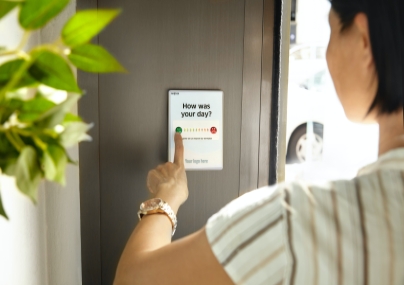多位中国政策消息人士指出,新型冠状病毒疫情预料将重创中国第一季经济增长,决策当局正在拟定支撑经济措施。
中国2020年经济增长原定目标为6%左右,许多民间经济学家认为这远超出中国能力所及。消息人士表示,中国当局正在讨论是否下修这个目标。
武汉肺炎死亡病例已超过420例,经济增长面临的风险日益升高,这些参与中国政府内部政策讨论的消息人士表示,中国央行2月20日料将调降指标贷款利率--贷款市场报价利率(LPR),并在未来几周调降银行准备金率。
“目前货币政策正在放松,但央行将采取步步渐进方式,并观察病毒疫情形势,”一位政策圈人士称。
中国央行本周已经向金融体系注入数千亿美元的资金,努力恢复投资者信心。过去两天,央行通过公开市场操作注入了1.7万亿元人民币(2,427.4亿美元)。
根据政策内部人士,为了将失业降至最低,中国领导人可能会批准增加支出、减税和对受病毒疫情打击行业提供补贴,同时进一步放松货币政策,以刺激银行放贷并降低企业借贷成本。
“我们有政策储备,将加大对经济的政策支持力度。最紧迫的任务是控制住疫情,”一位给政府提供咨询的匿名消息人士称。
他们表示,支持措施将集中于零售、餐饮、物流、交通和旅游等行业,这些行业可能受到重创,尤其容易造成失业。
了解政策的内部人士说,政府支出增加可能会将年度预算赤字相对比率从2019年的2.8%提高到今年的3%,地方政府可能将被允许发行更多债券来为基础设施项目筹资。
知情人士说,鉴于疫情导致某些地区假期延长,已经影响了工厂和投资活动,决策者认为现阶段有针对性的措施比无限制的信贷放松更为有效。
在中国许多地区,包括山东省以及苏州和上海等城市,农历新年假期实际已延长了10天,同时交通网络也受到限制以遏制肺炎疫情扩散。40多家外国航空公司已暂停飞往中国的航班。
“有必要加强对经济的政策支持,但现阶段我们不需要采取强力的刺激措施,”其中一位内部人士说。
As virus fallout widens, China readies more measures to stabilize economy
Chinese policymakers are readying measures to support an economy jolted by a coronavirus outbreak that is expected to have a devastating impact on first-quarter growth, policy sources said.
The sources said the government is debating whether to lower the planned 2020 economic growth target of around 6 percent, which many private sector economists see as well beyond China’s reach.
With the death toll from the virus epidemic climbing to over 420 and risks to growth mounting, China’s central bank is likely to lower its key lending rate - the loan prime rate (LPR) - on Feb. 20, and cut banks’ reserve requirement ratios (RRRs) in the coming weeks, said the sources who are involved in internal policy discussion.
“Currently, monetary policy is being loosened, but the central bank will follow a step-by-step approach and watch the virus situation,” said a policy insider.
The People’s Bank of China (PBOC) has already pumped in hundreds of billions of dollars into the financial system this week as it attempted to restore investor confidence and as global markets shuddered at the potentially damaging impact of the virus on world growth. In the past two days, the PBOC has injected 1.7 trillion yuan ($242.74 billion) through open market operations.
In order to minimize job losses, China’s stability-obsessed leaders are likely to sign-off on more spending, tax relief and subsidies for virus-hit sectors, alongside further monetary easing to spur bank lending and lower borrowing costs for businesses, according to the policy insiders.
“We have policy reserves and will step up policy support for the economy. The most urgent task is to put the virus outbreak under control,” said a source who advises the government, who spoke on condition of anonymity.
Support measures will be concentrated on the retail, catering, logistics, transportation and tourism sectors, which are likely to be hit hard and are especially vulnerable to job losses, they said.
Increased government spending could push up the annual budget deficit relative ratio to 3% this year from 2.8% in 2019, and local governments could be allowed to issue more debt to fund infrastructure projects, the policy insiders said.
Policymakers deem targeted measures as more effective than unfettered credit easing at this stage, given that the outbreak has weighed on factory and investment activities due to the extended holiday in some regions, the insiders said.
The Lunar New Year holiday has been effectively extended by 10 days in many parts of China including powerhouse regions such as Shandong province and the cities of Suzhou and Shanghai, while transport networks have been curtailed to curb the spread of the disease. More than 40 foreign airlines have suspended flights to China.
“It’s necessary to step up policy support for the economy but we don’t need to use strong stimulus at this stage,” said one of the policy insiders.
While Beijing has rolled out a series of support measures in the last two years, mainly in the form of higher infrastructure spending and tax cuts, leaders have pledged they will not embark on massive stimulus like that during the 2008-09 global crisis, which saddled the economy with a mountain of debt.
The PBOC has cut the RRR, or the amount of cash that banks must hold as reserves, eight times since early 2018, with the latest reduction taking effect on Jan. 6. It has also lowered its key lending rates modestly since August.
MORE PAIN AHEAD
China’s economy grew 6% in the fourth quarter, bringing 2019 expansion to 6.1% in 2019, the weakest in nearly three decades as demand at home and abroad weakened in part due to the bitter Sino-U.S. trade war. Growth of about 5.6% this year is seen enough for meeting the long-term gross domestic product target.
This year is symbolically crucial for the ruling Communist Party to fulfill its goal of doubling GDP and incomes in the decade to 2020, turning China into a “moderately prosperous” nation.
Chinese leaders face a more challenging job than they did during the Severe Acute Respiratory Syndrome (SARS) outbreak in 2002-03, as the economy is now driven more by consumption and services, and growth has been on a downward trajectory.
The virus has killed 425 and infected 20,438 in China, most of them in central Hubei province, the epicenter of the outbreak.
“It’s hard to see a turning point in the outbreak. First-quarter GDP growth could dip below 5% and the impact may persist in the second quarter,” said Wang Jun, chief economist at Zhongyuan Bank.
Many private economists have lowered their growth outlook for China, with Louis Kuijs at Oxford Economics forecasting 5.4% growth in 2020, compared with 6% previously.
Tao Wang, China economist at UBS, predicted first-quarter growth could dip to 3.8%, and 5.4% for the whole year.
During the SARS outbreak, China’s growth slowed to 9.1% in the second quarter of 2003 from 11.1% in the first, before rebounding to 10% in June-September, bringing the full-year expansion to 10%.


